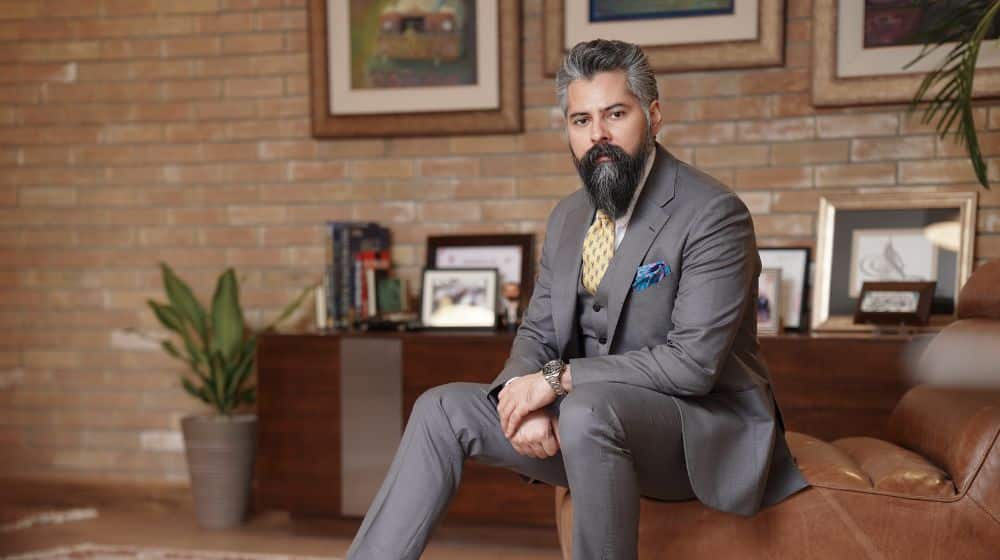“I can tell you from my experience that women loan clients are far better in terms of repayment behavior than men,” revealed Kabeer Naqvi, President & CEO of U Microfinance Bank Limited in an exclusive interview with ProPakistani.
“Some years ago, it was shocking for me to see a clause in the loan application form that mandated married women to seek their husbands’ approval to acquire the loan. Plus, women were getting only about half the loan amount on the same cash flow as compared to male applicants. We at U Bank fixed that,” Naqvi informed.
He said this while responding to a question about women’s abysmal financial inclusion numbers in Pakistan. “There are lots of social hoops and barriers that we need to cross to bring more women into the ambit of financial inclusion,” Kabeer said while talking about products and banking services for women.
Kabeer further informed that many women in Pakistan weren’t even allowed to keep a phone. Some others are only allowed to use a mobile phone for a few hours in a day, he added.
For Kabeer, social and financial inclusion (and exclusion) go hand in hand. “When we talk about people being financially excluded, they’re also socially excluded most of the time.” He added that it was social exclusion that kept people financially excluded as well.
“My team and I travel about 6,000-7,000 kilometers every quarter to go out into the communities and get the real perspective. We notice that as soon as we exit big cities like Karachi, Islamabad, and Lahore, things change dramatically.”
“Phone networks get patchy, feature phones become increasingly ubiquitous, and road networks get more crumbled. We see an incremental rise in lack of opportunity, malnutrition, social injustice, and countless other problems that directly impact people’s financial inclusion as we move farther,” he reveals.
Kabeer said that microfinance banks – by design, by definition, and by mission – were at the forefront of managing financial exclusion and including people socially as well as financially.
Responding to our question about financial literacy in Pakistan, Naqvi said that if we didn’t act now, the current youth bulge would become a huge liability in 10-15 years’ time.
“We’re sitting on a youth bulge with 65% of Pakistanis being under the age of 34. And when you see that 26.6 million children are out of school, and we’re not able to provide them with education or vocational training, this youth is going to become a massive liability in over a decade.”
U Microfinance Bank, he said, was doing its part in promoting financial literacy in Pakistan. “When we go to remote communities and set up our branches there, we also hire locally and have the big task of turning non-bankers into bankers.”
“Through the training and education that we provide, they grow to become tellers, CSOs, branch managers, and we even have instances of them becoming business heads too. This model helps us contribute to promoting financial literacy right through communities.”
Telling ProPakistani about the potential of the local microfinance industry, Kabeer Naqvi said it was massive with the current lending size amounting to PKR 300 billion and 8.5 million loans in the market.
We also asked Kabeer about U Microfinance Bank’s performance, the challenges that Covid-19 brought, the way forward for the local microfinance industry, digital payments, and more, to which he gave insightful answers.
Watch Kabeer’s full interview here:
ARVE Error: src mismatchprovider: youtube
url: https://www.youtube.com/embed/Nb_RjNrTDpc
src in org: https://www.youtube-nocookie.com/embed/Nb_RjNrTDpc?feature=oembed&modestbranding=0&showinfo=0&rel=0&autoplay=1
src in mod: https://www.youtube-nocookie.com/embed/Nb_RjNrTDpc?modestbranding=0&showinfo=0&rel=0&autoplay=1
src gen org: https://www.youtube-nocookie.com/embed/Nb_RjNrTDpc


























Please loan want me
Please help
This is a good opportunity for Pakistan woman’s to use the the mindset